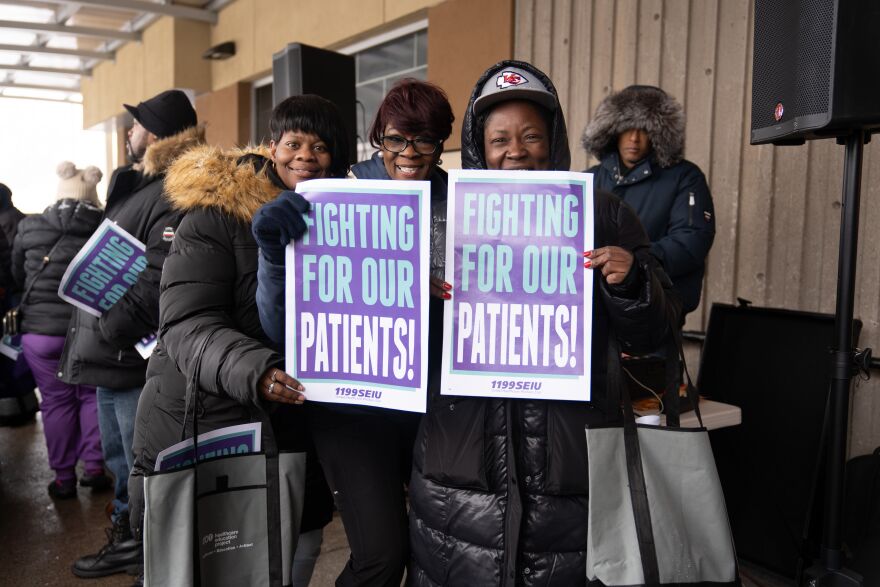Protestors across New York state have been rallying against health care cuts that are part of Gov. Kathy Hochul’s budget proposal for 2024-25.
Local health care workers and leaders were joined by clergy, elected officials, and Medicaid patients outside Jordan Health Center demanding that the governor also prioritize Medicaid reimbursement rates in her budget.
“I would go so far to say we are at a crisis moment right now,” said Tracey Harrison, 1199 SEIU Vice President. “Something has to give or this is going to have some more devastating effects in the real near future.”
Hochul proposed slashing Medicaid by $1.2 billion, though the state Senate and Assembly rejected the cut in their budget proposals. Harrison said the negative effects of Hocchul’s plan would trickle down to every sector, particularly hospitals and nursing homes, which he said ultimately affects the entire community.
“We're seeing dramatic effects across the board, from delays of services, recruitment and retainment of staff,” Harrison said. “It’s also a little concerning, because there is money that could address this issue. They say it's for a rainy day. It's raining.”
Even without the Medicaid cut, nursing homes have already had to reduce the number of available beds due to staffing shortages. Local hospitals have been left to do damage control. Kathy Parrinello, chief operating officer for Strong Memorial Hospital, said that roughly 10 percent of the bed in that hospital are being occupied by patients who are waiting for nursing home patients. That’s left the hospital to develop “creative ways” of accommodating patients waiting to be admitted, she added.
“If we don't fund Medicaid appropriately it certainly affects Medicaid recipients, but it affects the insured population as well. Because the beds --the services--aren't available for them,” said Kathy Parrinello, chief operating officer.
She added: “If we can get those patients moved out of the hospital, then we'll be able to get the patients that sit in hallways and come to the ED (emergency department) for really urgent and acute medical problems moved up,” Parrinello said.
Jennifer Eslinger, president of health care operations at Rochester Regional Health, said the budget cuts would only further degrade the state’s health care system.
“When we can't even cover our costs, how can we provide more impactful cost of living increases to our employees,” she said.
Medicaid currently pays hospitals in New York 30% less than their actual cost of care.
“People lives are at stake,” said health educator, Ronieka Burns. “It's affecting a population of people that are voiceless.”
Burns said everyone needs to come to the table and do their part to ensure a fair settlement is reached .
“This is not my thing. This is not your thing. This is our thing,” Burns said.



